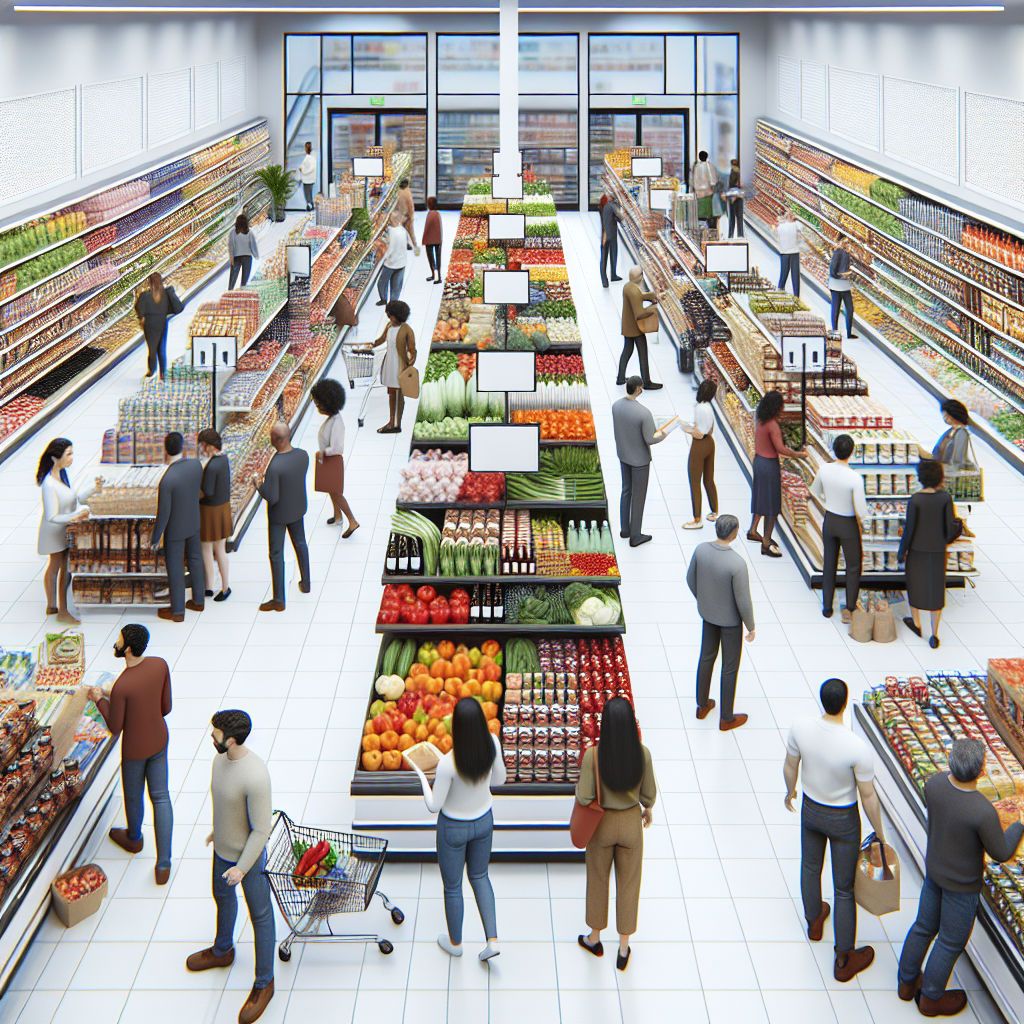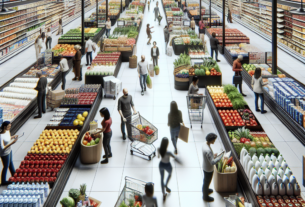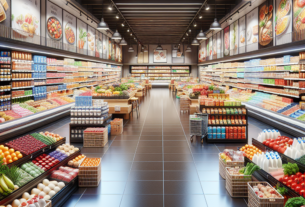Sustainability in Grocery Retail: How Major Supermarkets Are Going Green
In recent years, the concept of sustainability has become increasingly important in the grocery retail industry. With growing concerns about climate change and environmental degradation, consumers are becoming more conscious of the impact of their shopping habits on the planet. This has led major supermarkets to take steps towards becoming more environmentally friendly and adopting sustainable practices in their operations. In this report, we will explore how some of the leading supermarket chains are going green and the impact of these initiatives on the industry as a whole.
The Current State of the Global Grocery Retail Industry
According to a report by CulinaryCoverage.com, the global grocery retail industry is projected to reach a value of $12 trillion by 2025. This growth is driven by factors such as population growth, urbanization, and changing consumer preferences. However, the industry is also facing challenges such as increasing competition, rising costs, and changing regulations. In this dynamic environment, sustainability has emerged as a key differentiator for supermarket chains looking to attract and retain customers.
Market Share of Leading Supermarket Chains
In the United States, some of the leading supermarket chains include Walmart, Kroger, Costco, and Albertsons. Walmart is the largest player in the market, with a market share of around 22%. Kroger follows closely behind with a market share of 10%, while Costco and Albertsons each have a market share of around 5%. These chains have a significant presence in the grocery retail industry and have the potential to drive change towards sustainability.
Financial Performance of Major Supermarkets
In terms of financial performance, major supermarket chains have been reporting strong results in recent years. Walmart, for example, reported total revenue of $559 billion in 2024, an increase of 3% from the previous year. Kroger also saw growth in its revenue, with total sales reaching $132 billion in 2024. These strong financial results provide supermarket chains with the resources needed to invest in sustainability initiatives and drive positive change in the industry.
Sustainability Initiatives in Grocery Retail
Many major supermarket chains have been taking steps towards becoming more sustainable in their operations. This includes initiatives such as reducing food waste, sourcing products locally, and investing in renewable energy. For example, Walmart has committed to reducing its greenhouse gas emissions by 18% by 2025 and has implemented programs to reduce food waste in its stores. Kroger has also made strides towards sustainability, with initiatives such as eliminating single-use plastics and investing in energy-efficient technologies.
Consumer Perception and Demand for Sustainable Products
Consumer perception and demand play a significant role in driving sustainability initiatives in the grocery retail industry. According to a survey conducted by CulinaryCoverage.com, 78% of consumers say that they are more likely to purchase products from a supermarket that is committed to sustainability. This indicates that there is a growing demand for sustainable products among consumers, and supermarket chains are responding to this by implementing sustainability initiatives in their operations.
Future Plans and Opportunities for Growth
Looking ahead, there are several opportunities for supermarket chains to further enhance their sustainability efforts and drive growth in the industry. This includes investing in renewable energy, reducing food waste, and promoting sustainable sourcing practices. By capitalizing on these opportunities, supermarket chains can differentiate themselves in the market, attract environmentally conscious consumers, and contribute to a more sustainable future.
In conclusion, sustainability has become a key focus for major supermarket chains in the grocery retail industry. By adopting sustainable practices in their operations, these chains are not only reducing their environmental impact but also attracting and retaining customers who are increasingly conscious of the planet. As the industry continues to evolve, sustainability will play an even greater role in shaping the future of grocery retail.



